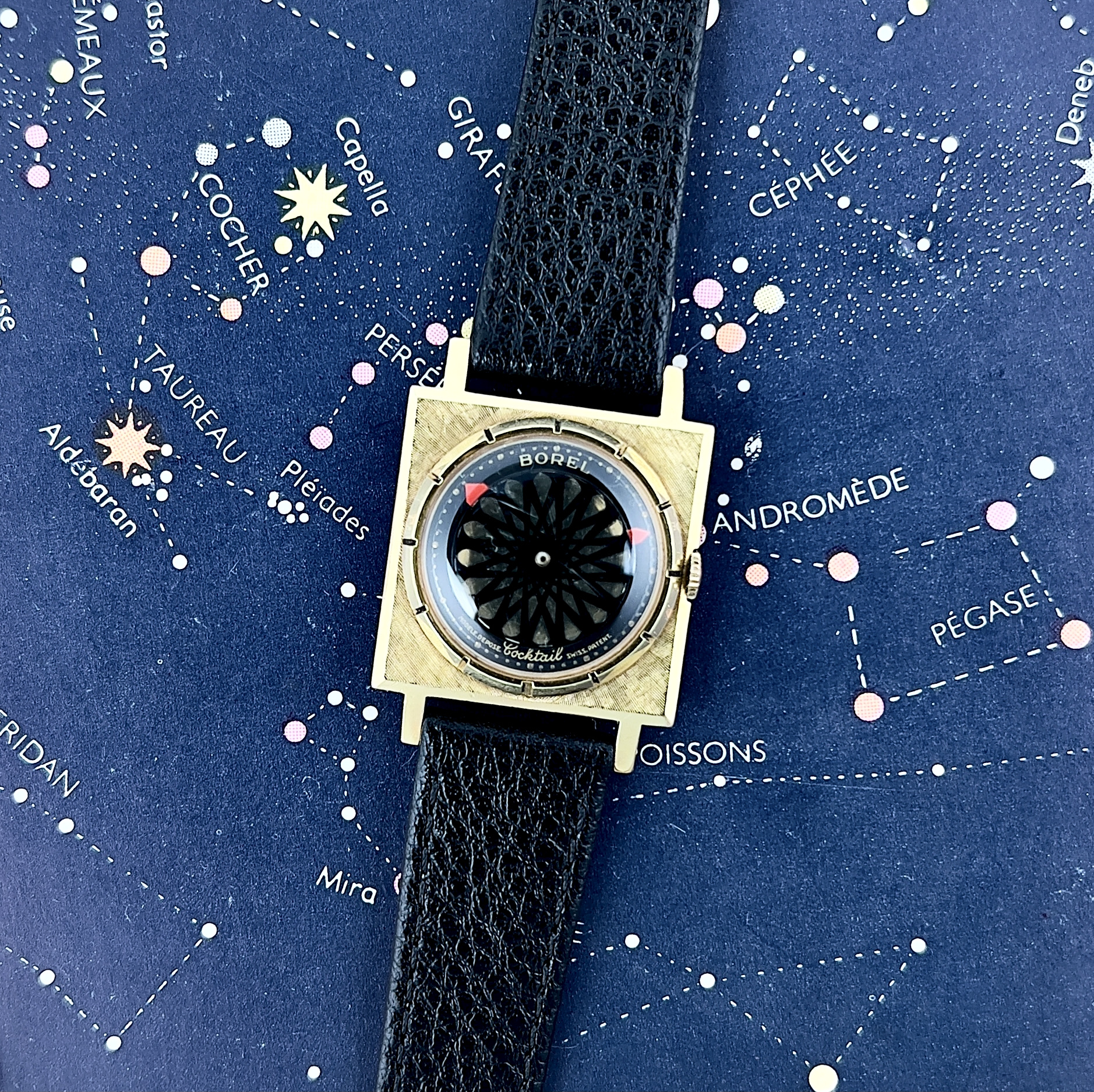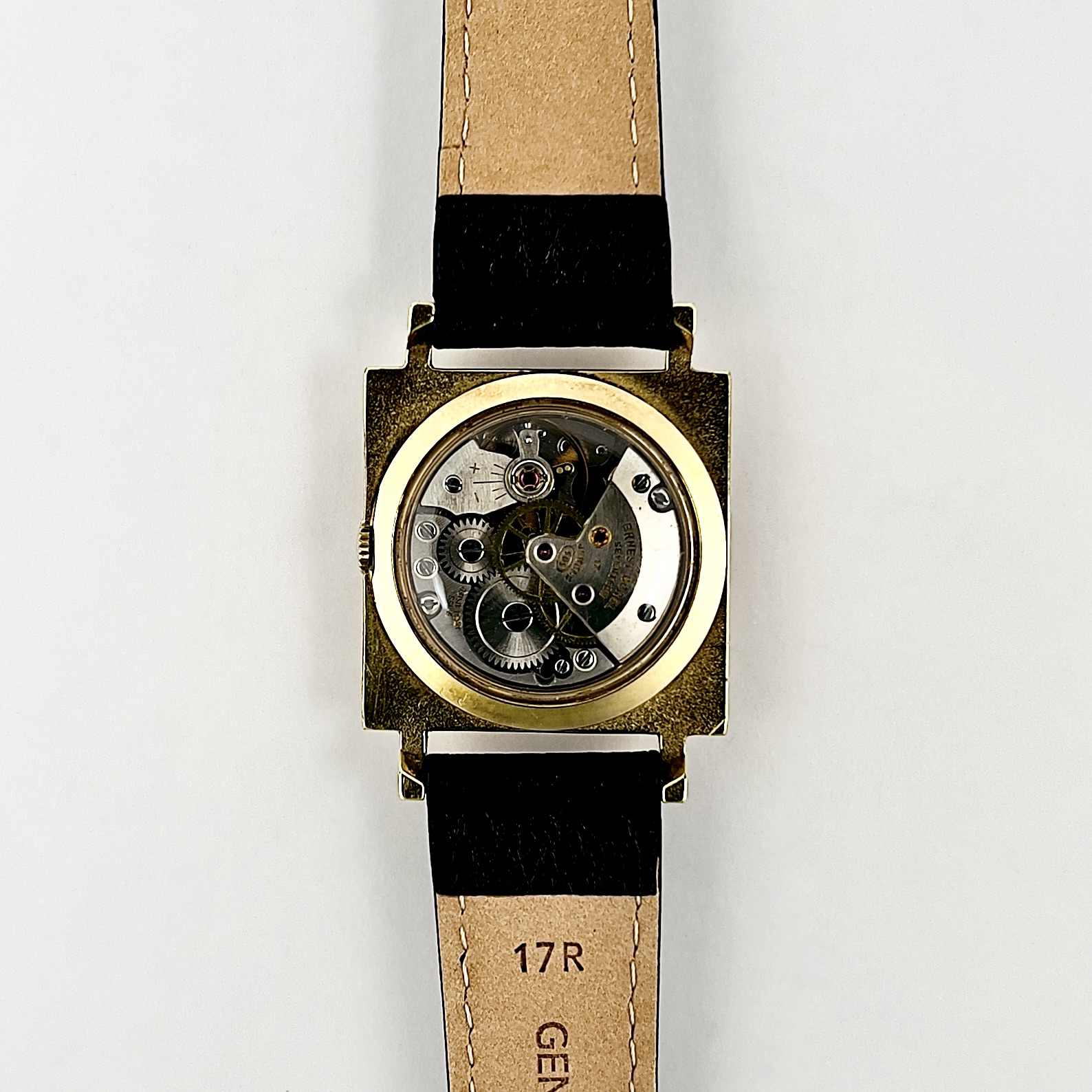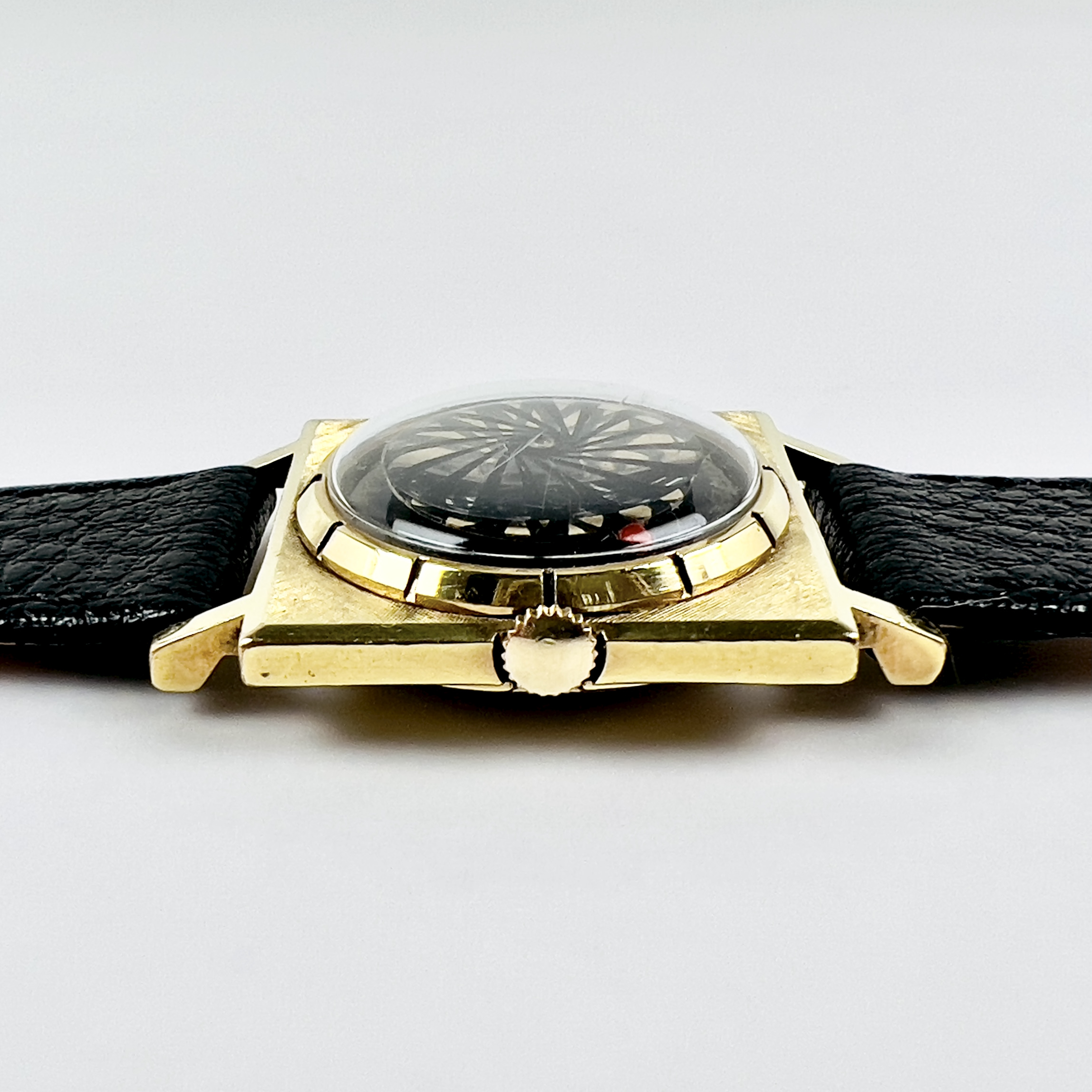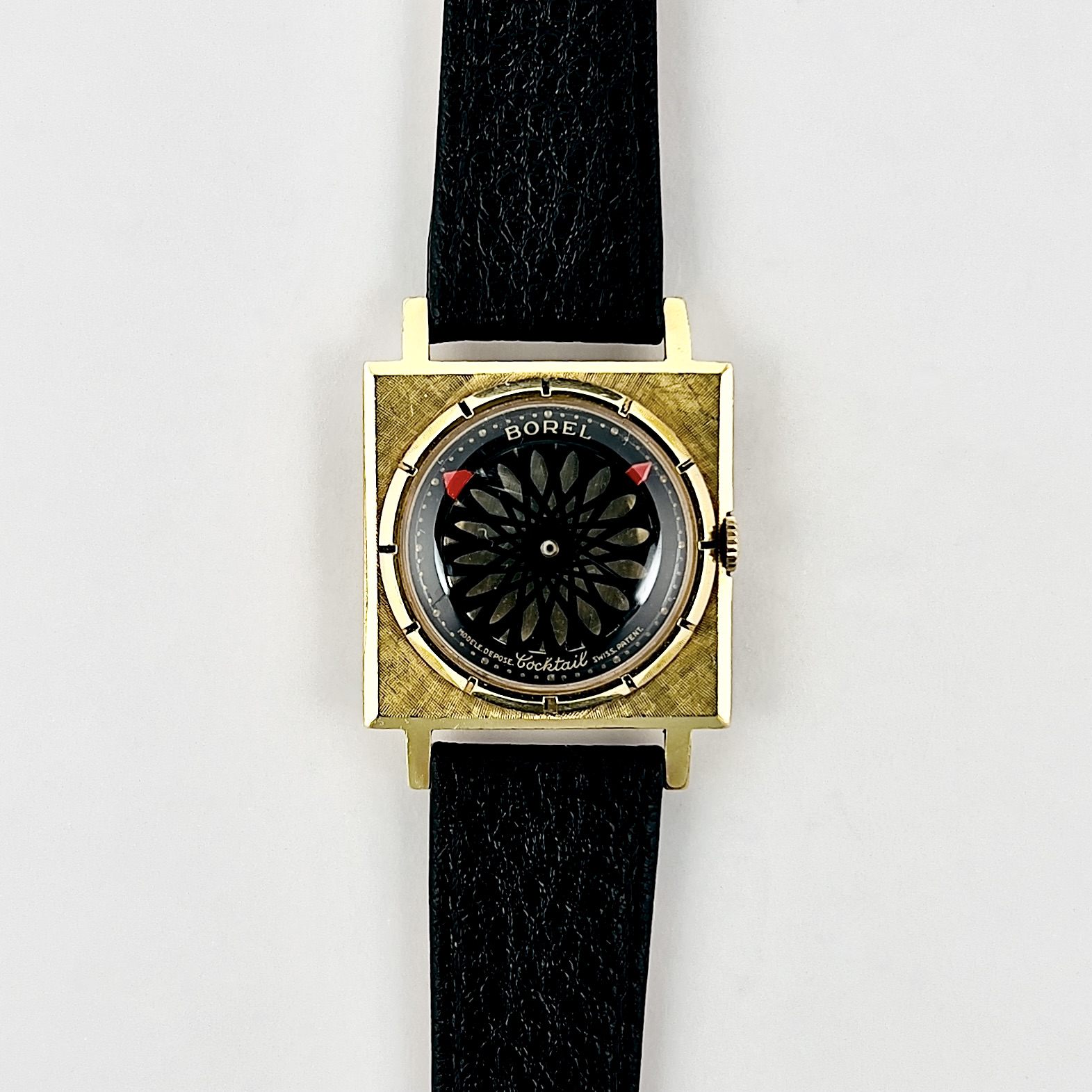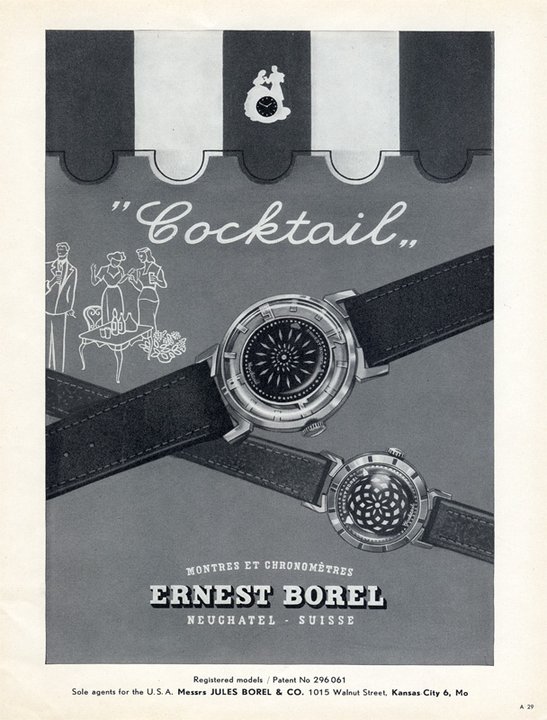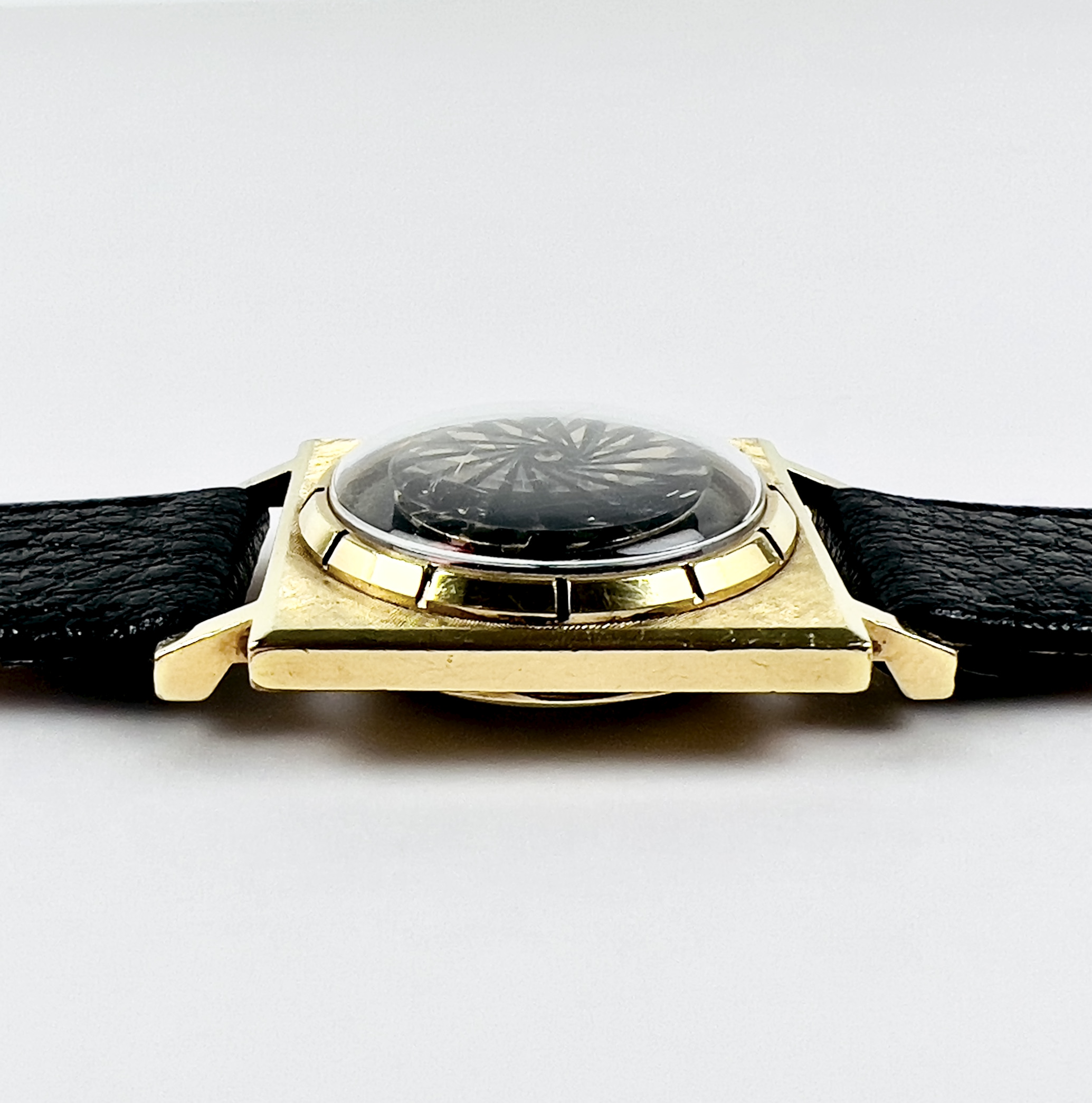-
ERNEST BOREL
COCKTAIL
SQUARE
CA. 1960
-
-
Very original Ernest Borel watch from the 1960s. It is part of the brand's famous "Cocktail" series.
Ernest Borel's history dates back to 1856 when Jules Borel began producing watches near Neuchâtel, Switzerland. Borel and his brother-in-law, Paul Courvoisier, founded the Borel & Courvoisier Company in 1859 and began exporting watches and clocks the following year. The company actively produced watches for the export market and placed first in a timing competition at the Neuchâtel Observatory in 1866. In 1876, Ernest Borel won prizes in Philadelphia and Paris, indicating their willingness to focus primarily on export.
-
Ernest, the son of Jules Borel, took over the company in 1894 and renamed it Ernest Borel & Cie in 1898. In 1903, Ernest Borel began selling watches in China, opening a major market for the brand. Jean-Louis Borel succeeded his father in 1936. Until the revolution of 1949, Borel will concentrate mainly on the Chinese market.
With the closure of China, Ernest Borel returned to Europe and entered the United States in the 1950s. The company experimented with the "incastar" balance system in ETA movements, but also produced watches with ordinary ETA and FHFplus movements at this time. Many were chronometers, with Borel producing 4,172 COSC-certified watches at that time.
The Cocktail watch, which defines Ernest Borel more than any other, was patented in 1952 and introduced in 1953. It was introduced as a women's watch only. A 1955 advertisement proclaimed it to be a watch "to enhance one's femininity without losing track of time". It was initially presented as a watch that women could wear to cocktail parties as a novelty item and/or conversation starter. The constantly moving kaleidoscope dial can be quite fascinating, although its secret is quite simple.
-
Two transparent plastic discs are mounted on the dial. One is fixed, the other is mounted on a central pinion that normally works to transform the movement of the second hand. When this free disk rotates, its pattern is juxtaposed with that of the fixed disk, creating a moving kaleidoscope effect. The original pattern on the wheels was in the shape of a lightning bolt, creating a continuous "sunburst" pattern. Other shapes have been introduced over the years and include flowers, arrows and stars. Each pattern creating a different kaleidoscope effect.
Cocktail watches occupied a relatively small market niche for Ernest Borel in the early years. Then came the 1960s, and the Cocktail Watch became the hippies' favorite. As a result, it was no longer a "kaleidoscope" dial, but a "psychedelic" watch. Men wanted their own version. Soon, the "Cocktail Watch" became Borel's bestseller, eclipsing all other models manufactured by the company.
-
This is a rare square-shaped men's or unisex version, also called Florentine, in relation to its case finish.
It is stamped "Borel" on the top and "Cocktail" on the bottom.
The gold-plated case and "skeleton" caseback reveal the hand-wound mechanical movement signed Ernest Borel. The whole is in fine condition for its age.
A unique kaleidoscope effect that will leave no one indifferent.

